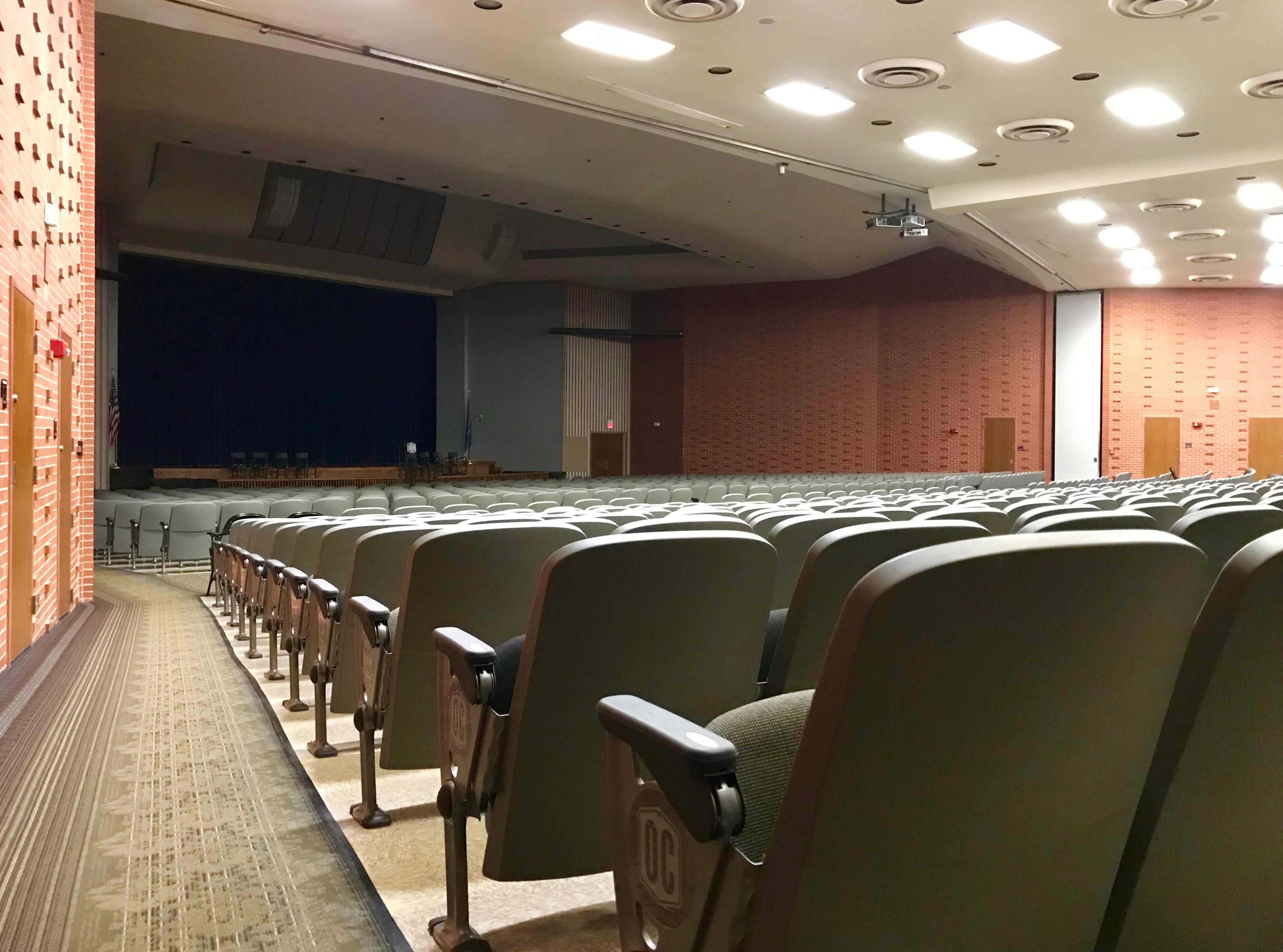Over winter break, Oklahoma Christian University administrators made the decision to remove the name of N.B. Hardeman from the big auditorium in the Garvey Center, due to racial accusations made against him.
Hardeman auditorium opened in 1966 to allow all students to fit into one space for chapel rather than attending four separate chapels. The Oklahoma Christian website states that “Hardeman Auditorium was named for N.B. Hardeman, a great preacher among churches of Christ in the early part of the 20th century and a longtime president of Freed-Hardeman College.”
According to the Christian Chronicle, the Churches of Christ have a deep history in racial discrimination and continue to have “two brotherhoods.” Foy E. Wallace Jr., a once prominent preacher within the Church of Christ fellowship, wrote a statement recalling a racial encounter with Hardeman during a valley-wide meeting at Harlingen, Texas.
“Some misguided brethren brought a group of negroes up to the front to be introduced to and shake hands with him,” Wallace said. “Brother Hardeman told them publicly that he could see all of the colored brethren he cared to see on the outside after services, and that he could say everything to them that he wanted to say without the formality of shaking hands.”
Oklahoma Christian Assistant Dean of Students, Gary Jones said he noticed the name Hardeman was gone after someone else pointed it out to him. He said he believes changing the name was a “really courageous thing” for President John deSteiguer to do.
“There are several people among faculty and staff who were aware and are excited about the change,” Jones said. “I think that once students get to know the stories a little bit more, they’ll be excited too. The name has been there for quite a while, I don’t know that it was an easy thing to do, but I do know that it was not something that [deSteiguer] took lightly.”
While unable to speak to the direct motive or reasoning behind the name change, Jones said he had knowledge of documentation asserting that Hardeman was a racist. Jones said he also works with promoting multicultural efforts for the University, but he did not want to make the name change his fight.
“I felt there needed to be a change, but I couldn’t be the one to lead the charge,” Jones said. “Meaningful change happens when people who are in positions of power are willing to give up that power or are willing to be uncomfortable for the sake of change. To be honest with you, somebody non-black had to fight that fight… My attention had to be on day-to-day issues that come with being a minority on our campus.”
Through Oklahoma Christian’s “History Speaks” program, the auditorium has hosted such speakers as Diane Nash, Olympians John Carlos and Tommie Smith and members of the Little Rock Nine.
While the auditorium remains nameless, the change has already had an impact for Jones and other minority students on campus.
“It used to really bother me when I first started working here,” Jones said. “It was almost like an inner issue that finally had some resolution. I didn’t need to post or to wear a t-shirt or hold up a sign, but for me, it was huge because I felt like somebody noticed. To be noticed and thought about and cared about I think is something that is very overlooked and undervalued.”












This is an excellent move. I hope the university will follow suit to remove other symbolic emblems of problematic former leaders.
I wonder how many older preachers could also be accused of being racist? They, like us, were people of their day and lived in keeping with there culture and time. Brother Hardeman was a man who was influenced by a culture that was racist. Should we really condemn men who knew no better or did not understand, how racist there actions were. And sure did not understand the scriptures in light of today’s interpretation of race relations. They can not repent now for the actions before their deaths. He was respected for his ability at the time, not his ability to read and understand the future situations.
How many more previous generation Gospel Preachers will be found guilty by a different standard of public conduct.
You know the Apostle Paul was for slavery. In the book of Philemon, he told a runaway slave to go back to his master. He went back as a brother and his master was a brother. Paul entreated them to treat each other as brothers in Christ. That being said, should we pull all the references to Paul out of the Bible. Times have changed and people have done what was acceptable in the period they lived. Today many people approve of homosexuality and living together without the benefit of marriage. In 50 years, these two things may be looked upon as unacceptable. We need not remove our history to please a few people who wear their feelings on their sleeve.
[…] officials quietly removed the Hardeman name from the auditorium over the Christmas break, a fact first reported by the student newspaper The Talon in late […]
[…] officials quietly removed the Hardeman name from the auditorium over the Christmas break, a fact first reported by the student newspaper The Talon in late […]
[…] officials quietly removed the Hardeman name from the auditorium over the Christmas break, a fact first reported by the student newspaper The Talon in late […]
[…] officials quietly removed the Hardeman name from the auditorium over the Christmas break, a fact first reported by the student newspaper The Talon in late […]
[…] officials quietly removed the Hardeman name from the auditorium over the Christmas break, a fact first reported by the student newspaper The Talon in late […]
[…] officials quietly removed the Hardeman name from the auditorium over the Christmas break, a fact first reported by the student newspaper The Talon in late […]